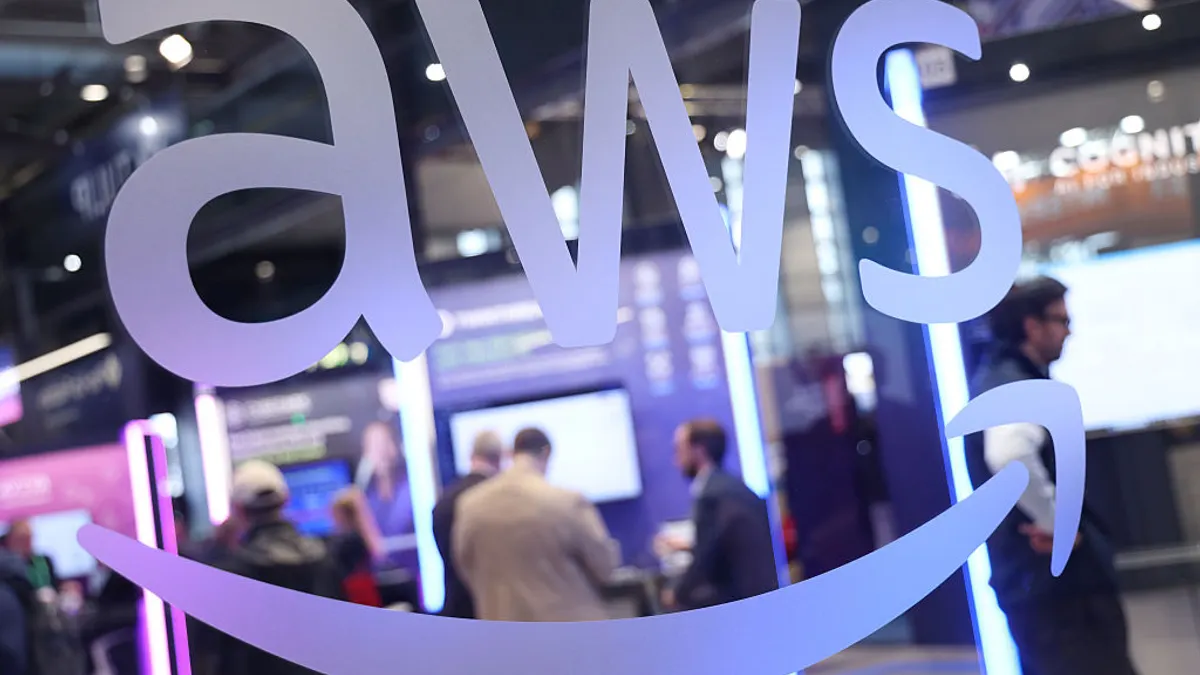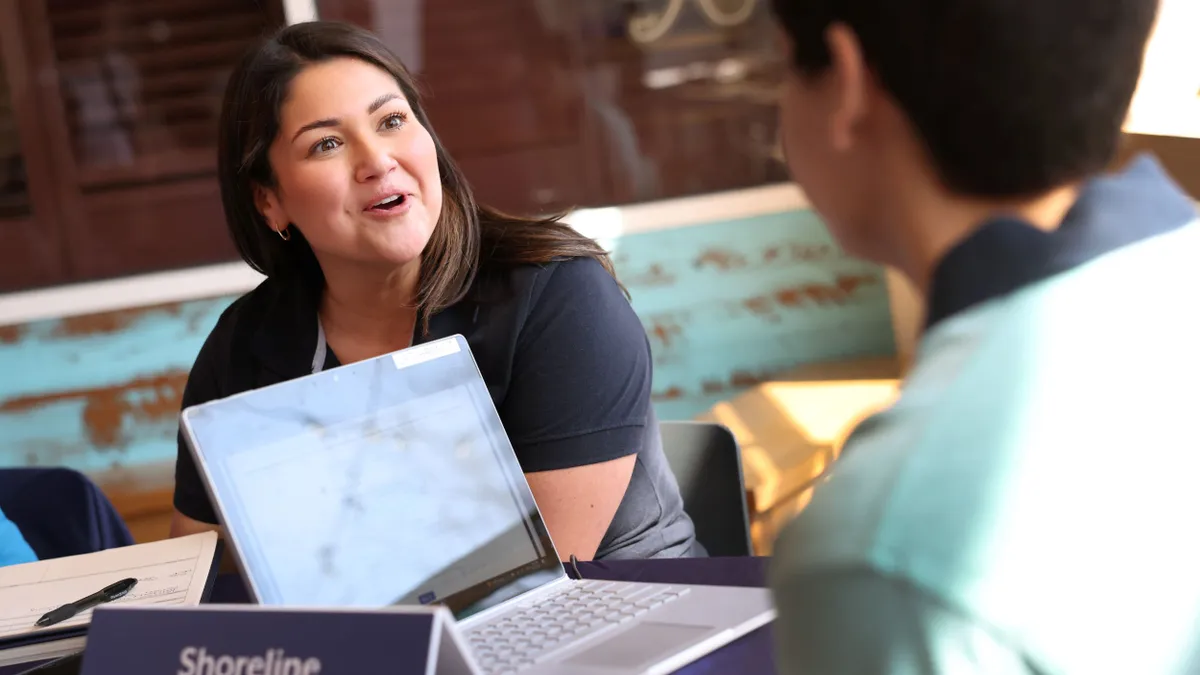In today's work environment, HR professionals are more essential than ever to conversations about technology. Their people-centric perspective can be key in determining how teams will rise to meet challenges presented by digital disruption; they can balance the prospects of boosting innovation and efficiency with considerations for how such changes will impact workers.
HR Dive spoke with Christy Lake, chief people officer at the cloud content management company Box, about HR's emerging role as a tech advocate in the workplace. Lake puts a finer point on the ethical implications of using employee data, the need for a collaborative work culture and more in this conversation about the tech-focused future of work. Questions and answers have been edited for clarity and length.
HR Dive: What does the HR/IT relationship look like at Box?
Christy Lake: It's been a guiding principle at Box that tech is not an expense, it's an enabler. What we do to help our teams work better optimizes their experience and benefits everyone.
We have an HR/IT partnership that's right for today's digital workplace. We need collaboration between HR and other stakeholders, like our real estate groups, to make sure we're all moving in the same direction.
Our goal is to provide the best employee experience for our "Boxers." Everything we do, all the tools we offer, have to be best-in-breed. We want to provide whatever they need that helps make their lives and their jobs easier – from software to hardware, standing desks, environmentally friendly meeting spaces and more. Our overall workspace has to be conducive to a collaborate approach to work.
HR Dive: What can employers do to foreground tech as an essential component of work?
Lake: For Box, it's been a conscious decision — part of our DNA — to grow the company with our core beliefs that transparency and access lead to better outcomes. Teams shouldn't have hurdles to jump through to get information; the faster it's available the faster we move and that helps everyone.
Rather than IT providing staff with tools and telling them to "love it," we take a consultant approach, collaborating with people to find the best solution for them. It's a different environment than other places I've worked, and I really appreciate how it enables functions and teams and lets people work seamlessly together.
HR Dive: How does technology impact the culture and people?
Lake: It can have a positive impact if you move to a collaborative model that starts with a philosophy and principles. Digital transformation is driving processes, but we need to look at how we modernize and ask what we're trying to achieve with our company. It often starts with use cases: What do our customers want, and how can we be that to our customers? We look at how to put processes of yesterday behind and design for tomorrow.
Change management is more than just change — it's changing the way we think, too. We see customers moving toward a more agile and digital environment. That has a knock-on effect. Some are aware of it and others are caught off guard. Conversations are emerging, intentionally or not, and companies need to be ready for that.
HR Dive: How can employers encourage innovation and agility?
Lake: We definitely have a very agile culture here, and it begins specifically with being collaborative. We look at how teams come together and work on challenges. It's the lifeblood of how we operate. We look at the tools we use that make it easier to collaborate transparently. We push for an open, communicative culture where teams can click in to find out what's going on with other groups. We're always looking for what our people do and listening to how we can help them do it better.
HR Dive: How do you keep your whole team on board with new initiatives?
Lake: We have to rethink how we bring them on board. Again, rather than saying "use this," we have to show people how change will lead to better outcomes. How is it new or different and beneficial? Knowing what they care about, like better customer outcomes, helps us show how new tools will make that easier.
But we have to make sure we understand their fears. I just spent the weekend updating a password manager system for myself. I knew I needed it but just kept putting it off and finally got to it. It was really hard. I understand concerns about new technology, but fear blocks innovation.
There's a lot of data about how damaging fear is in the workplace. The old management style of fear and intimidation doesn't work. You never get innovation if employees afraid of the consequences. We need to put people at ease with change, give them time to figure it out and figure it out together. We need to make it okay not to know everything and demonstrate that taking risks is how we learn and grow as a team.
HR Dive: What do you think will be HR/IT challenges in the future?
Lake: Machine learning and AI are upon us now. We'll need to have meaningful conversations in the coming years about how we're using that tech and whether we're leveraging it for the good of people. The same goes for the data we collect: Are we leveraging it for good? HR has access to so much data, we'll need to be deliberate in how we protect and use it.
I think privacy will be another challenge. We are collecting mountains of data about our people — who they are, how they advance, what they learn. We'll need to be mindful of privacy and security, which will be a challenge because cyber roles today are so difficult to fill with so much demand. Everyone needs a cyber professional on staff.
Privacy and security will be top of mind, along with collaboration, but initiatives to assure security of personal or enterprise data will be one of the biggest trends.





















